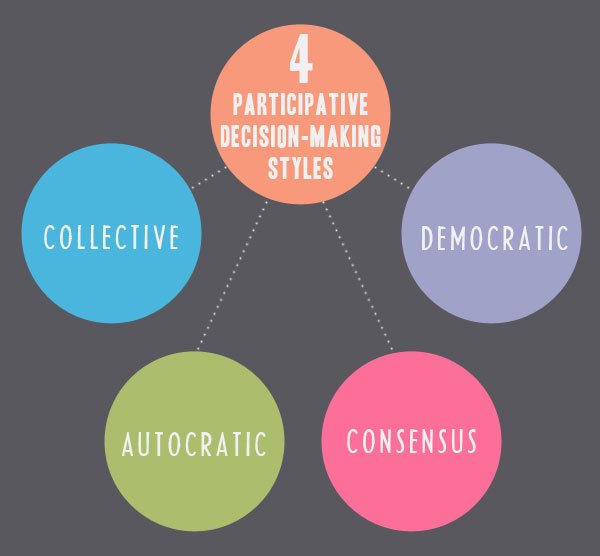Which Family Business Decision-making Process Will Be Most Affected by Bounded Rationality
Which family business decision-making process volition be virtually affected by bounded rationality?
- Collaborative
- Independent
- Autocratic
- Consensus
- Democratic
Among the choices, the correct answer is c. Autocratic. Permit u.s.a. explain these concepts farther in this commodity.

In whatsoever business organization opportunity, y'all juggle challenges and decisions left and correct, none of them less important than the other. Whether y'all have planned for them for years or you have just encountered them an 60 minutes agone, your controlling skills, amongst others, will always be put to the test.
Businessmen are no strangers to decisions; in fact, in any field, one volition always encounter situations when they need to choose only one path to have. For entrepreneurs, yet, they should have neat instinct and/or well-developed skills and so that they will be able to predict and select the all-time selection possible. Even if they have time or people at their disposal to consult with, there are too moments when they need to decide on their ain — this is a concept referred to equally independent conclusion-making.
No decision has a negligible consequence on our lives. From the daily question of what to eat, to even the life-changing enquiry of what chore to apply for, decisions bring about change. Although when it comes to achieving success, one has to be firm in their choices and never backtrack once the dice accept been rolled. Success can be attained by people who set goals for themselves and are willing to move on and acquire from their mistakes. Those who are not sure of their decisions and are shifty or hands swayed are more probable to run across failure.
What are the Types of Decision-making?

Decision-making, at its very core, is the process of making choices by identifying different decisions and possible alternatives. In organizations or groups, a leader usually has the concluding say when it comes to choosing a path to become with. A leader has to consider not only what's all-time for themselves or a select few, but, more importantly, what'due south for the best of the whole group.
Here, we will enumerate some of the most common types of decision-making processes.
- Collaborative
The collaborative or collective controlling process entails brainstorming among the members of the groups, including the leader. Each person's opinions on the state of affairs are put into consideration earlier the leader finalizes the group'south conclusion.
While it is time-consuming, this process strengthens camaraderie, as well as promotes engagement and creativity from the group mates. When teamwork has been heightened, there is a higher probability that the individuals in the group would invest more try into making certain the solution would be a success.
- Autocratic
In the process of autocratic (contained) decision-making, a lone figure oversees choosing the best possible option. Like what we skimmed over a few paragraphs ago, there are situations wherein an individual must evaluate all choices and alternatives, finalize plans, and requite these plans to higher-ups. These are all achieved without getting inputs from others.
We volition hash out more on this style afterwards on in the commodity.
- Consensus
The process of decision-making through a consensus involves the group taking full responsibility for the final selection fabricated. While at that place is notwithstanding a leader who volition oversee the process, all the members of the group are heavily involved in it. They are required to concur to the leader's final conclusion, regardless of their reservations towards it.
Different with the collaborative process (where getting the members involved in the planning and executing processes is a relatively easier task), the consensus way of controlling is more time-consuming, since the participation out of the group members who are confronting the final determination may exist harder to coax.
- Democratic
Lastly, the democratic way of controlling implicates the leader relinquishing their control over the final conclusion, instead of assuasive a majority vote to make up one's mind it. This is said to be fairer and faster than the other styles; moreover, information technology offers a relatively higher degree of group partaking. Nonetheless, because of this, there is less hazard of developing responsibility for the decision, whether it exist equally an individual or as a grouping.
Features of Autocratic Decision-Making
Now nosotros will focus on the correct respond to the question of which family business organisation decision-making process will be most affected past divisional rationality, the autocratic decision-making process.
Every bit was same, there is only ane person who acts as an overseer in this decision-making process. The individual assesses all choices and possibilities, picks a final plan, and implements information technology without getting inputs from others.
The term "autocratic" is the adjective course of "despot," which refers to a person who has unquestionable authority. It stems from autokrates, from the Greek words autos (self) and kratia (rule; from kratos, meaning forcefulness or power).
Some of the style'due south benefits include being fast-paced and having fewer obstructions. This is mainly considering only one person is needed to execute the whole process. Moreover, having an autocrat ways in that location will be minimal if at all, time spent on communicating and deliberating with a squad. When time constraint is the biggest concern, opting for an autocratic arroyo is the best fashion to go, particularly if the called autocrat (decision-maker) possesses sound judgment and a great instinct for success.
But with every benefit comes a downside, and autocracy is not a stranger to such. The whole grouping would be relieved of responsibility for the decision; instead, all of it would fall on the leader. Not only could this cause adversity inside the group, but it could too make the members experience apathetic over the lack of input on the final conclusion. It is also probable that the leader would experience pressured with having full responsibility, for even the almost capable person is still capable of making mistakes, which could exist avoided if in that location are other people that could serve as 'other sets of eyes,' per se.
However, given this '1 person do-all' concept, it is inevitable that others consider it a dictatorship. Moreover, since no incentive or recognition is presented to whatever of the grouping members, low morale volition surely follow. These make the concept outdated in the modernistic setting. In history, the autocratic way of controlling (and, consequently, dictatorship) has been regarded every bit a villainous concept and is connected to figures like Adolf Hitler and Joseph Stalin. Autocrats are deemed to exist overly powerful and, thus, are hard to remove from say-so.
Bounded Rationality and Autocracy
The term bounded rationality refers to the view that "rationality is limited" when people decide due to mind and data limitations, as well as time constraints, amidst others. It is proposed by Herbert Simon that it has become ane of the groundworks of behavioral economics.
The autocratic decision-making process, every bit y'all may recall, is handled past a unmarried person only. Therefore, all the limitations brought about by divisional rationality affects how the despot decides. This is peculiarly because there is no i else to give a dissenting opinion or a piece of additional data needed to be considered before landing on the final decision.
Decision
Whatsoever situation in life requires 1 to make decisions, whether they have major or minor furnishings on life. There are various styles or ways on how people make decisions. Some of these styles are, namely, collaborative, autocratic, democratic, and consensus. Virtually of these involve participation from all members of the group to varying extent. However, among the 4, the autocratic style of decision-making involves only one person to complete the process. In time-bounded cases, this way would be especially benign. Even so, no involvement from the group may heighten apathy over the group'due south success. To a degree, autocracy could be considered as a dictatorship. Therefore, being a solo-run process, the autocratic way becomes the answer to which family unit business decision-making process volition be most affected by bounded rationality.
montoyathrervoich.blogspot.com
Source: https://novusbars.com/bounded-rationality-and-the-family-business-decision-making-process/
0 Response to "Which Family Business Decision-making Process Will Be Most Affected by Bounded Rationality"
Post a Comment